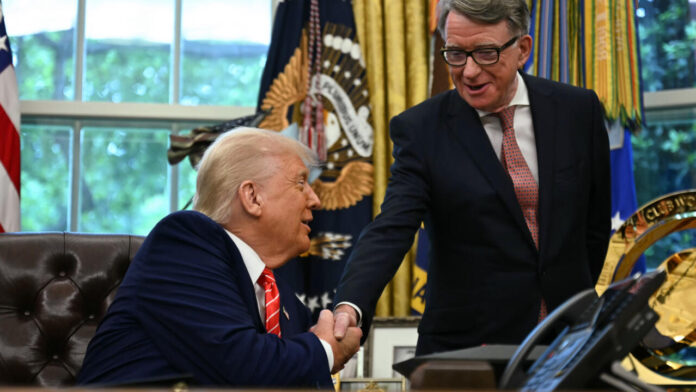China has formally criticised the UK for endorsing a newly negotiated trade deal with the United States, warning that the agreement’s embedded security clauses may effectively force British firms to exclude Chinese products from their supply chains. The diplomatic censure underscores rising geopolitical tensions, as Beijing views the deal as a strategic manoeuvre aligning the UK too closely with Washington’s economic and security priorities.
The agreement, finalised last week, grants the UK selective relief from punitive US tariffs on automotive and steel exports. However, these concessions are conditional upon rigorous compliance with American security protocols—most notably, comprehensive supply chain vetting and stringent foreign ownership transparency. These provisions are widely interpreted as mechanisms to curtail Chinese corporate influence.
China’s foreign ministry issued a pointed response, criticising the agreement as a contravention of global diplomatic norms. “State-to-state cooperation should not undermine third-party interests,” a spokesperson declared, referencing established international trade principles that discourage exclusionary practices.
Heightened Strategic Tensions
The timing of this bilateral trade arrangement presents considerable challenges for the UK government. Prime Minister Keir Starmer’s administration has been actively working to reset and stabilise UK-China relations, with recent diplomatic overtures aimed at restoring economic dialogue that had stagnated in recent years. Notably, Chancellor Rachel Reeves visited Beijing earlier this year to revive high-level talks.
However, Beijing perceives the terms of the US-UK agreement as a geopolitical affront. Senior Chinese economists and officials, including Zhang Yansheng of the China Academy of Macroeconomic Research, have denounced the security clauses as “poison pills” that are more restrictive than traditional tariffs. These concerns suggest a potential deterioration in bilateral trust, complicating future economic engagement.
Supply Chain Realignments and China’s Economic Response
This episode comes amid China’s strategic pivot towards “dual circulation”—a policy initiative aimed at strengthening domestic production capabilities while safeguarding economic independence from foreign pressures. In practice, this involves steering state-backed enterprises towards indigenous sourcing and bolstering national capabilities in advanced manufacturing and clean technology sectors.
Consequently, the perceived economic containment via Western trade agreements is likely to reinforce China’s resolve to accelerate this self-sufficiency agenda. The exclusionary dynamics of the UK-US deal may thus inadvertently catalyse a more assertive Chinese industrial strategy.
UK’s Trade Position and Diplomatic Balancing Act
From the UK’s perspective, the agreement with the US is presented as a pragmatic step to bolster domestic industry and secure high-value jobs. Tariff reductions on British car exports—from 27.5% to 10% for up to 100,000 vehicles annually—and the lifting of duties on UK steel and aluminium are tangible wins. Yet, these are contingent on adherence to security requirements that implicitly limit future cooperation with Chinese firms.
The UK government has maintained that its relationship with China remains economically significant. A spokesperson emphasised that the UK continues to engage “pragmatically” with China in areas of mutual benefit, including clean energy, finance, and technology—despite the complex geopolitical backdrop.
This balancing act reflects broader challenges for Western nations navigating a shifting global order, where aligning with strategic allies may increasingly come at the cost of fraying ties with other major economies.


